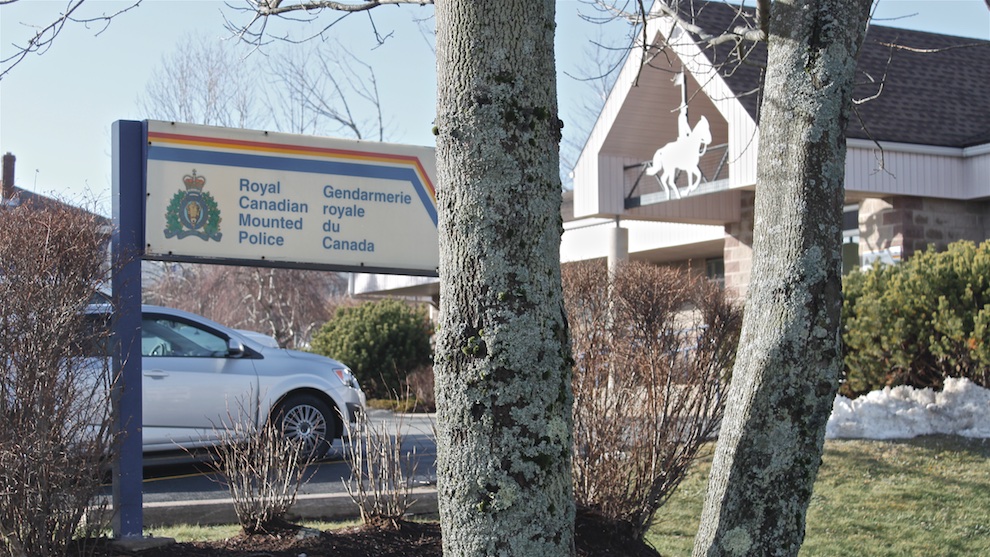Nova Scotia mass shooter’s common-law spouse ‘re-victimized’ by RCMP, experts say
Lisa Banfield facing charges after enduring intimate-partner violence

caption
RCMP headquarters in Cole Harbour.A Nova Scotia non-profit is calling for the charges against Lisa Banfield to be dropped to avoid “re-traumatizing” a victim of gender-based, intimate-partner violence.
On April 18, Banfield was the first victim of a rampage that would become known as the largest mass shooting in Canadian history.
In a statement of claim filed to the Supreme Court of Nova Scotia, Banfield, the gunman’s common-law spouse, states that she was the victim of assault and false imprisonment by the gunman prior to the first shootings in the small Nova Scotian community of Portapique that night.
Last Friday, the RCMP laid the first charges in its investigation of the massacre, alleging three people — Banfield and two others — provided the gunman with ammunition without prior knowledge of his plot. Related stories
The charges against Banfield have sparked controversy due to her self-identification as a victim of intimate-partner violence by the gunman.
Martha Paynter, chair of Wellness Within, a Nova Scotia non-profit serving criminalized women and transgender and nonbinary individuals, condemned the charges in a news release Wednesday.
In an interview, Paynter said the news of the charges caused her to feel “disgust” and “profound disappointment.”
“Although we continue to see very disappointing and misogynist behaviour from the RCMP, the level of collective grief that the massacre involved and the extensive months and months of comments we have joined in, with respect to the need for a feminist analysis, made it all the more galling,” Paynter said.
Undermining trust in the system
“The arrest of Ms. Banfield demonstrates the continued egregious failure of the RCMP to protect the safety of women,” Paynter wrote in the news release.
“Intimate partner violence is about power and control. We can hardly expect any survivor of intimate partner violence to have any trust in the criminal justice system that is supposed to protect her safety after seeing this news.”
This sentiment was echoed by Dalhousie University law professor Wayne MacKay. In an interview, he said the charges “re-victimize” Banfield and could carry grim implications for survivors of domestic violence.
“For many women, this will be yet another sign that the justice system does not respond well to the plight of women in abusive relationships,” MacKay said. “And that will further discourage them (from) laying charges and coming forward.”
Failing women ‘because they are women’
In the news release, Paynter referred to the charges against Banfield as “glaring evidence” of the RCMP’s “inability to consider sex and gender in their work.” She also pointed to a March settlement of a class-action suit against the Mounties for gender and sexual orientation-based harassment and discrimination as further evidence.
The RCMP issued a response to the March settlement acknowledging the impacts of the harassment and discrimination and the need for ‘meaningful, holistic’ change at all levels of the organization. In November, Commissioner Brenda Lucki told reporters the RCMP failed women in the organization “because they are women.”
In the news release, Paynter called on the RCMP to drop the charges against Banfield to show that Lucki’s words are “more than just words.”
“Sex and gender considerations must be central to the actions of the justice system,” Paynter wrote.
“Defunding the police and directing those funds to community-based services that offer true safety and support and respect the right to self-determination of survivors will end cycles of violence.”
Paynter said police in Nova Scotia, and Canada at large, don’t have a sufficient understanding of how women’s lives work and therefore should not be involved in efforts to protect them, adding that the efforts they do take often make things worse.
Paynter said Banfield’s actions were not only understandable, considering her abusive relationship with the gunman, but also indicative of her ability to survive another instance of misogynistic mass violence in Canada, referring to the École Polytechnique massacre, which was remembered last Sunday on its 31st anniversary.
“We know that GW, like so many perpetrators of homicide, already had a history of violent behaviour towards women as well as others,” Paynter said.
“The massacre requires a feminist analysis to understand how he got to the place he got to — how our culture, and certainly our policing, condones male violence, and accepts male violence, because it is based on male violence.”
Paynter went on to describe policing as a “deeply patriarchal, violent institution.”
A ‘strong public interest’ in not re-victimizing the accused
The charges against Banfield constitute a hybrid offence, MacKay said, meaning they can be pursued as either a summary offence or an indictable offence, the latter being the more severe of the two.
He argued, based on the information that’s currently available, it would seem there is a “strong public interest” to drop the charges or, failing that, pursue a summary route, which would carry a lighter penalty for Banfield.
“If the charges do proceed, and even the fact that she’s now been charged, plays into the reluctance of women in abusive situations to turn to the justice system for help,” MacKay said.
In its release announcing the charges, the RCMP indicated it will “refrain from further commenting” on the investigation of the mass shooting outside of the joint public inquiry.
About the author
Simon Smith
Simon Smith is a multimedia journalist with The Signal in Halifax, Nova Scotia. He is an avid traveller and is interested in local news, business,...
